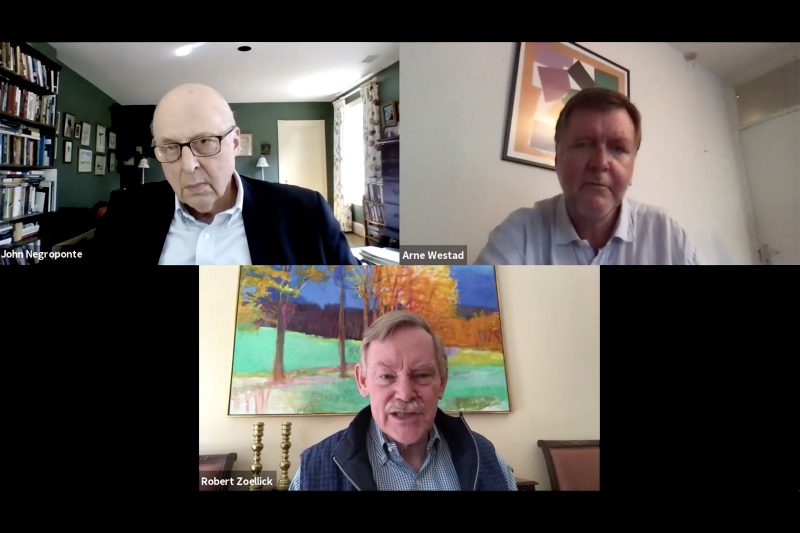Speakers included Amb. Robert Zoellick, Amb. John Negroponte and Professor Arne Westad.
Nearly 200 attendees tuned in for the September 30 discussion, “America in the World: A History of U.S. Diplomacy and Foreign Policy,” with former World Bank President Amb. Robert Zoellick.
Amb. John Negroponte, Jackson Senior Fellow, and Arne Westad, Elihu Professor of History and Global Affairs at Yale, joined the discussion.
The conversation centered around Zoellick’s new book of the same name.
Recounting the actors and events of U.S. foreign policy, Zoellick identifies five traditions that have emerged from America’s encounters with the world: the importance of North America; the special roles trading, transnational, and technological relations play in defining ties with others; changing attitudes toward alliances and ways of ordering connections among states; the need for public support, especially through Congress; and the belief that American policy should serve a larger purpose.
During the discussion, Zoellick talked at length about the relationship between foreign policy and trade, focusing in on the early days of the republic and its key figures including Alexander Hamilton and Thomas Jefferson. One of the reasons for the United States’ early success as a nation, Zoellick argued, was its doctrine of neutrality and its ability to consolidate control over territory on the continent.
Zoellick also referenced modern-day examples of the U.S. using investments to import the rule of law into another country, citing the North American Free Trade Agreement (NAFTA).
Zoellick was also asked to comment on the relationship between a president and the secretary of state. “That bond is fundamental to effectiveness,” he said, offering the example of President Lincoln and William H. Seward.
